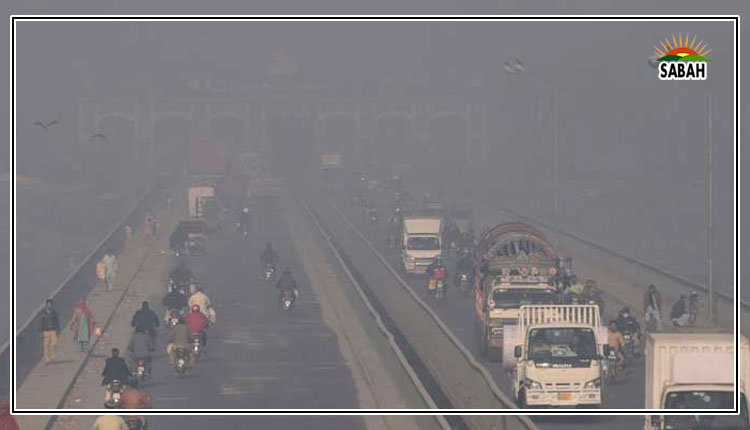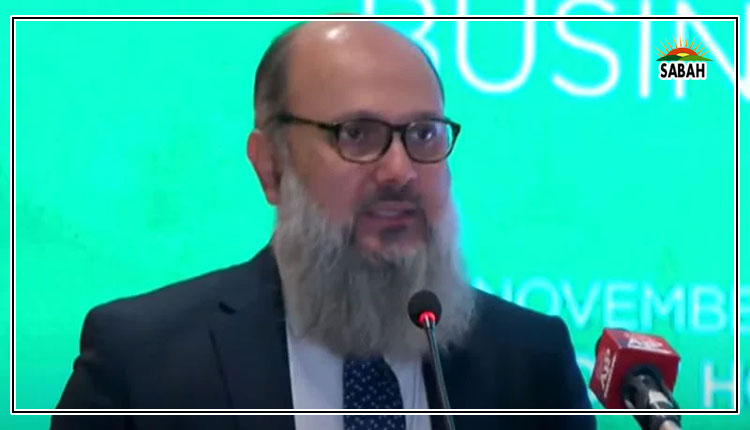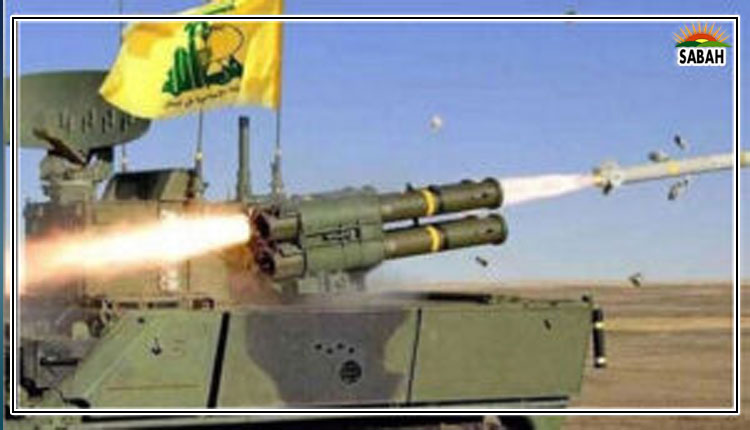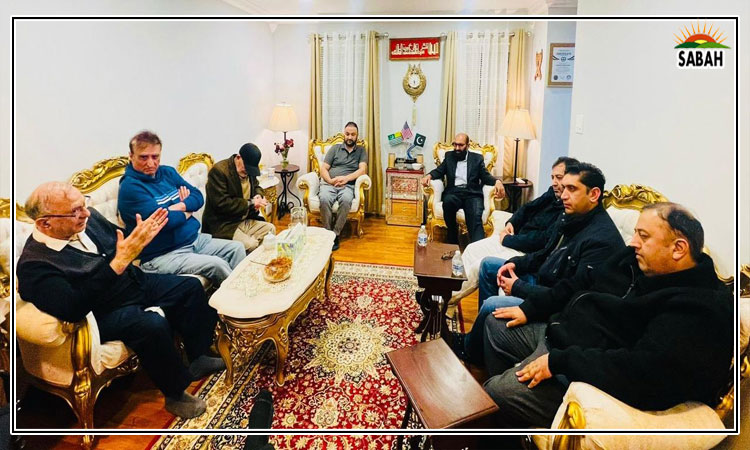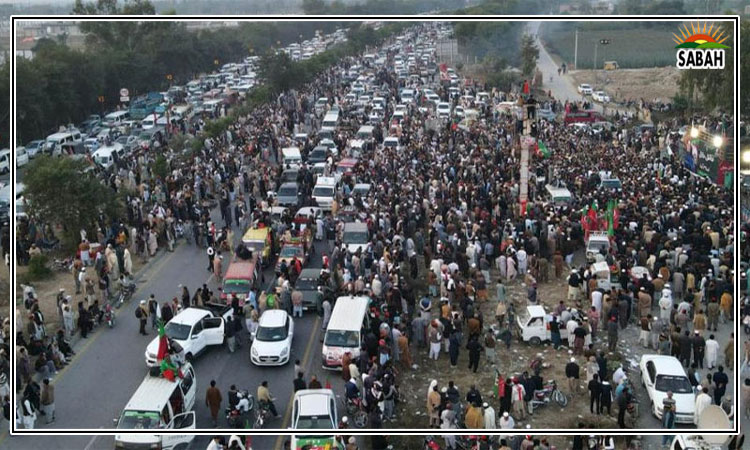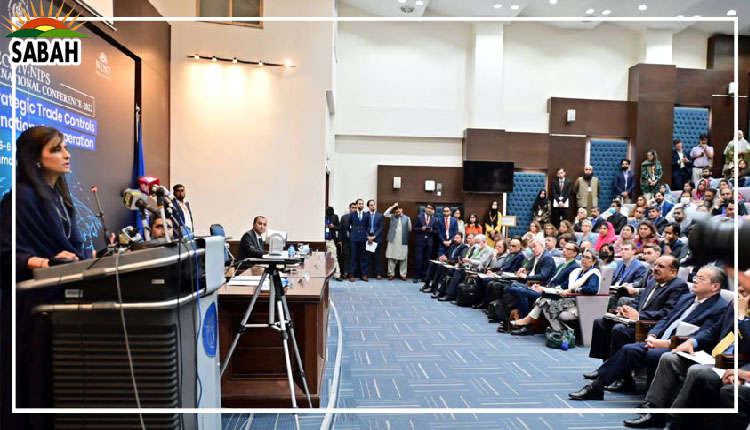Pakistan remains fully cognizant of its obligations pertaining to non-proliferation & disarmament: Hina Rabbani Khar
ISLAMABAD, Sep 05 (SABAH): Minister of State for Foreign Affairs Hina Rabbani Khar has said Pakistan being a responsible state with advanced nuclear technology remains fully cognizant of its obligations to nonproliferation and disarmament.
While addressing an international conference titled “Promoting Strategic Trade Controls through International Cooperation” being organized by the Strategic Export Control Division (SECDIV) of the Ministry of Foreign Affairs, she reiterated that Pakistan shares the global concerns on proliferation of weapons of mass destruction. Hina Rabbani Khar thanked the National Institute of Policy Studies (NIPS), National University of Science and Technology (NUST), for its cooperation with the SECDIV for the organization of this event.
“I welcome the national and international experts participating in the Conference and look forward to their valuable contributions to the deliberations planned for today and tomorrow” she said.
Hina Rabbani Khar said that as a responsible state, with a thriving S&T landscape and advanced nuclear technology, Pakistan remains fully cognizant of its obligations pertaining to non-proliferation and disarmament. It shares the global concern regarding the threat posed to international peace and security by proliferation of Weapons of Mass Destruction (WMDs). Accordingly, we have put in place extensive legislative, regulatory and administrative framework for exercising effective controls over transfers of sensitive goods and technologies to prevent their diversion to non-peaceful uses.
She said that over the years, Pakistan has streamlined and strengthened its export control regime. It is at par with the international export control standards and best practices. Pakistan’s regulatory framework on export control is based on various legislative instruments, including the Export Control Act 2004, National Control Lists, Comprehensive Licensing and Enforcement Rules and Guidelines on Strategic Export Controls. Pakistan’s National Control Lists and Guidelines are fully harmonized with those of the multilateral export control regimes i.e. the Nuclear Suppliers’ Group (NSG), Missile Technology Control Regime (MTCR) and Australia Group (AG). We have declared adherence to NSG Guidelines and shown keen interest in joining all the aforementioned regimes, she said.
Hina Rabbani Khar said that established in 2007, pursuant to the Export Control Act 2004, the Strategic Export Control Division (SECDIV) is responsible for the review and implementation of the national export control regime. She said that SECDIV also acts as the licensing authority for dual-use goods and technologies; and coordinates with multiple stakeholders, including industry, Chambers of Commerce, academia, Customs and border enforcement agencies on raising awareness and understanding of strategic trade controls.
She said that while exercising effective controls over transfers of dual-use items to prevent proliferation of WMDs and their means of delivery, Pakistan maintains that all states have a right to access dual-use goods and technologies for legitimate socio-economic applications. Therefore, Pakistan has time and again called for striking a balance between bona-fide trade and security interests, she said.
Hina Rabbani Khar said that the need for free access to technologies becomes more significant in relation to new and emerging technologies such as Information and Communications Technologies, Artificial Intelligence, Bio and space technologies given their ever increasing applications for public health, climate change, water, food and energy security. The UN development agenda recognizes the key enabling role of technology for the achievement of the Sustainable Development Goals (SDGs).
Hina Rabbani Khar said that Pakistan is fully committed to its obligations as a state party to various international instruments including the Chemical Weapons Convention, Biological Weapons Convention, Convention on the Physical Protection of Nuclear Material and Facilities, Nuclear Safety conventions and the IAEA Code of Conduct on the Safety and Security of Radioactive Sources. Pakistan also subscribes to the IAEA Supplementary Guidance on the Import & Export of Radioactive Sources. We are actively participating in the Global Initiative to Combat Nuclear Terrorism (GICNT).
She said that Pakistan regularly shares reports to the United Nations Security Council 1540 Committee on the implementation of the Security Council’s Resolution 1540 and has also adopted a National Action Plan in this regard. In collaboration with the United Nations Office for Disarmament Affairs (UNODA), Pakistan organized “Regional Seminars on the implementation of 1540” in 2017 and 2018. Moreover, Pakistan is has responded positively to country-specific requests for technical assistance made by the 1540 Committee.
Hina Rabbani Khar said that among other things, this conference will afford an opportunity to focus on the implementation of United Nations Security Council Resolutions on non-proliferation and their role in promoting strategic trade controls through international cooperation.
Hina Rabbani Khar said that Pakistan has a complete programme to harness the full potential of nuclear energy for peaceful applications. We possess the expertise, infrastructure, human resource, as well as the ability to supply items listed in NSG Control Lists. Pakistan has a long tradition of international scientific collaborations. In addition to being actively involved in IAEA’s activities, Pakistan has been contributing and regularly participating in CERN’s projects. Pakistan became the first country in the region to gain Associate Membership of CERN in 2014. The country also interacts with the World Association of Nuclear Operators (WANO) and World Nuclear Association with regards to enhancing safety of the nuclear power plants.
She said that Pakistan applied for NSG membership in 2016. With an extensive civil nuclear programme and ability to supply items, goods, technologies and expertise relevant to the NSG Control Lists, Pakistan’s participation in the Group will help further the non-proliferation goals of the NSG. We believe that the NSG should agree on objective criteria for the membership of non-NPT states which are applicable without discrimination. Policies of exceptionalism and country-specific approaches, driven by commercial and political considerations, are detrimental to the credibility of the non-proliferation regime.
Hina Rabbani Khar said that Pakistan is facing severe power shortage as it is a fossil-fuel deficient country. In order to meet its enormously increasing energy needs; and to support economic growth and industrial development, reliance on civil nuclear energy is an imperative. Our energy requirement is expected to grow by a factor of 7 over the next two decades. Adherence to global non-proliferation and nuclear safety and security standards and regime harmonization should further enhance international confidence and facilitate international cooperation in nuclear power generation and collaboration in health, industry, agriculture and other sectors.
She said that Pakistan desires to explore opportunities for collaboration across the entire spectrum of international trade of dual-use goods and sensitive technologies. We aspire to work with the international community with an aim to develop an all-encompassing and comprehensive framework of cooperation for our future generations which also effectively addresses the objective of non-proliferation. Such framework would lead to economic progress and prosperity across the globe.
“Let me conclude with the hope that this conference will also provide an opportunity to deliberate on certain emerging challenges in the field of trade controls. These challenges relate to the increasing volume of international trade in dual-use goods and technologies, coupled with rapid developments in science and technology including biotechnology, artificial intelligence, cloud computing, 3D printing, and autonomous weapon systems” she said.


